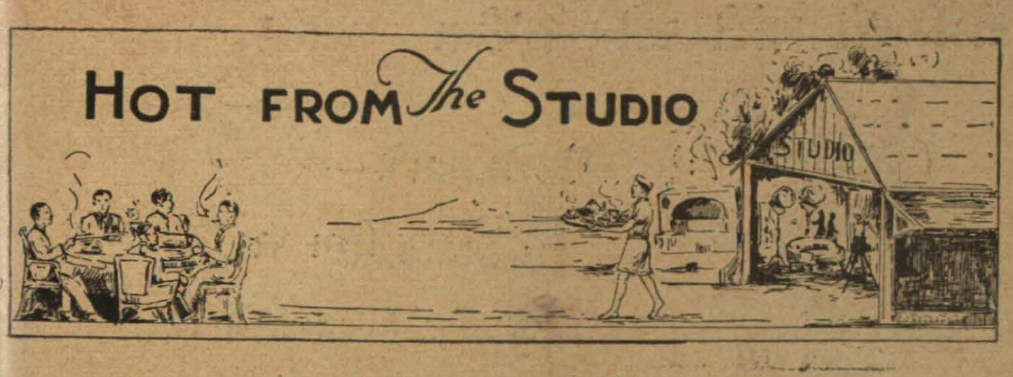
Podcast interview for the Josef Wirsching photobook on “High Theory,” a podcast from the New Books Network. Listen to me discuss Bombay Talkies here and Wirsching himself here.
Bombay Hustle awarded an Honorable Mention after being shortlisted for the Modernist Studies Association First Book Prize 2021. The awards committee shared this note of commendation: “Bombay Hustle is the product of remarkable archival research, examining the city’s burgeoning film industry with a ‘practitioner’s eye view.’ Mukherjee makes creative use of financial records, court documents, labor history, advertising, newspaper reviews, trade magazines, and other written traces to present a thrilling materialist history of colonial Bombay cinema of the 1920s, ‘30s, and ‘40s. Bombay Hustle rejects the view that the Hollywood model—marked by the vertical integration of the film industry—should be the standard by which all other cinematic production ought to be judged. Instead, Mukherjee suggests that filmmaking in colonial India was defined by hustle, or the stretching of resources—talent, expertise, equipment, and capital—right to the breaking point and sometimes beyond.”
Book review by Jennifer Fay, BioScope: South Asian Screen Studies, October 2021. Available online.
Bombay Hustle has been shortlisted for the First Book Prize awarded by the Modernist Studies Association. October 2021.
Bombay Hustle was one of 3 finalists for the Richard Wall Memorial Award which recognizes “exemplary work in the field of recorded performance”. September 2021.
“Sound, a Game-Changer in Bollywood,” an excerpt from Bombay Hustle reprinted by Live History India, April 28, 2021.
“Staying with the Struggle: Loving and Laboring in Bombay Cinema,” new online article up on the India in Transition website. Hosted by University of Pennsylvania’s Center for the Advanced Study of India. April 26, 2021.
You can see some rare film clips from 1930s Hindi films in this blog post - “Movie Clips from Bombay Hustle” on the Columbia University Press website.
My essay, “Somewhere between Human, Nonhuman, and Woman: Shanta Apte’s Theory of Exhaustion” won the Katherine Singer Kovács Essay award from the Society of Cinema & Media Studies (SCMS). The essay was published in the special issue on “Embodiment” guest edited by Shelleen Greene and Ellen C. Scott for the journal Feminist Media Histories, 6.3: 21-51.
Video interview with Mini Menon for Live History India’s Book Club series. See here.
Book Review by Hrishikesh Arvikar, Studies in South Asian Film and Media, 11(2): 261-266.
Video interview with Ketaki Varma for the photography app ASAP Connect. You can watch it on YouTube here. March 2021.
Review by Jai Arjun Singh in India Today, online Feb 19, 2021, issue date March 1, 2021. “Debashree Mukherjee tells the story of how the Hindi film industry came of age in pre-independent India.”
Interview by Vanessa Viegas for Hindustan Times, Feb 21, 2021. “How Bombay became the home of Hindi cinema: New book does some digging.”
Podcast interview with Matt Bowes. Bollywood is for Lovers, January 12, 2021.
Book review by Soni Wadhwa. Asian Review of Books, January 6, 2021. “Bombay Hustle goes beyond film criticism and film history to contribute to urban history as well.”
Book review by Dr. Eleanor Halsall. The Wire, November 28, 2020. “The ‘Unglamorous’ Side of Filmmaking Can Be No Less Fascinating. A new book explores the early world post-sound Bombay cinema, embracing in its ambit, anonymous migrant workers, financing and women’s bodies.”
Excerpt from Chapter 1 of Bombay Hustle. The Wire, November 15, 2020. “Early Bombay Cinema and Its Close Links With the Cotton Trade”
Interview by Suryasarthi Bhattacharya, Firstpost, November 11, 2020. “Debashree Mukherjee's Bombay Hustle is a rigorous, empathetic study of the making of the film industry in colonial India.”
Interview with Rudradeep Bhattacharjee, Scroll, November 8, 2020. “Debashree Mukherjee is on a roll. Bombay Hustle, her sprawling book on cinema and the city during the tumultuous years of the transition from silent films to the talkies (1920s-1940s), has just been published.”
Feature article by Jane Borges, Midday, September 27, 2020. “In her new book, researcher Debashree Mukherjee offers a portrait of the film industry from the 1920s to '40s, the studios which helmed it and the satta bazaar that financed it, as it made a transition from silence to sound.”
Interview with Eve Glasberg, Columbia News, September 22, 2020. “Debashree Mukherjee recently discussed her book Bombay Hustle with Columbia News, along with her recommendations for the best films to watch now, what she’s been reading, and who she would invite to a dinner party.”